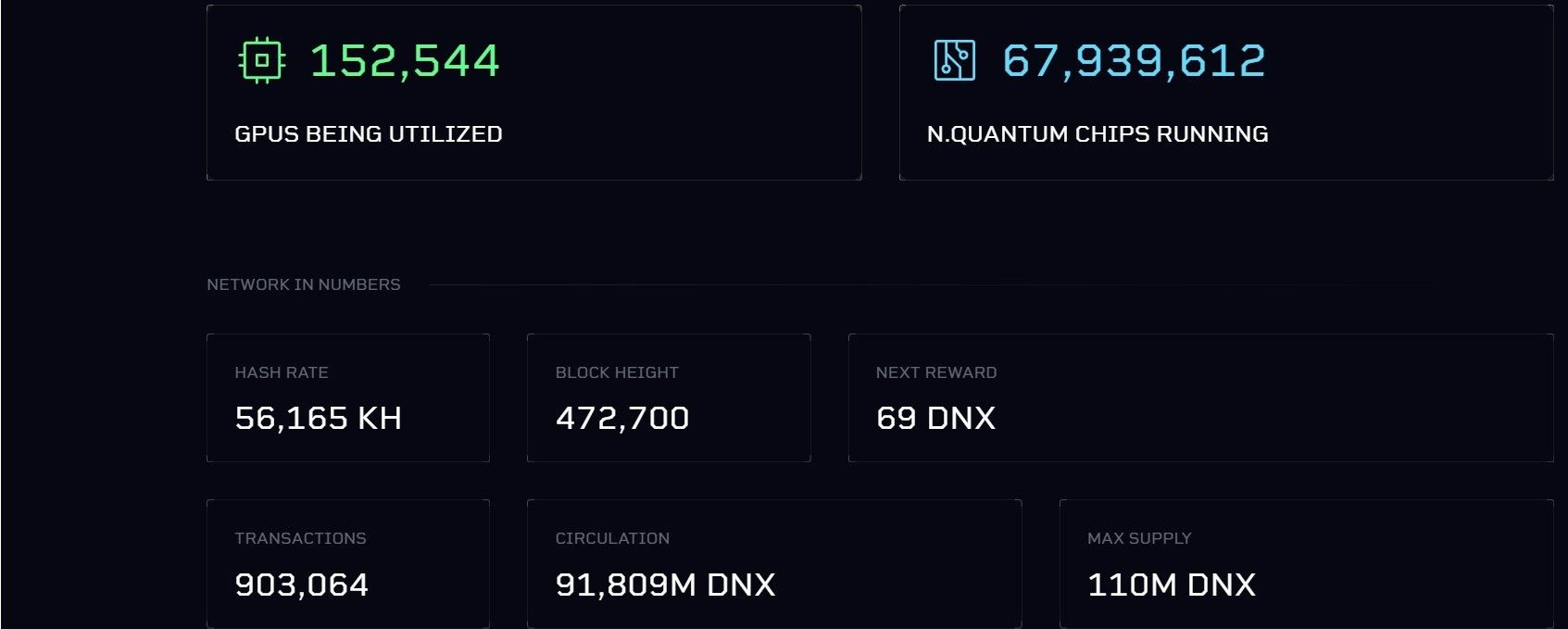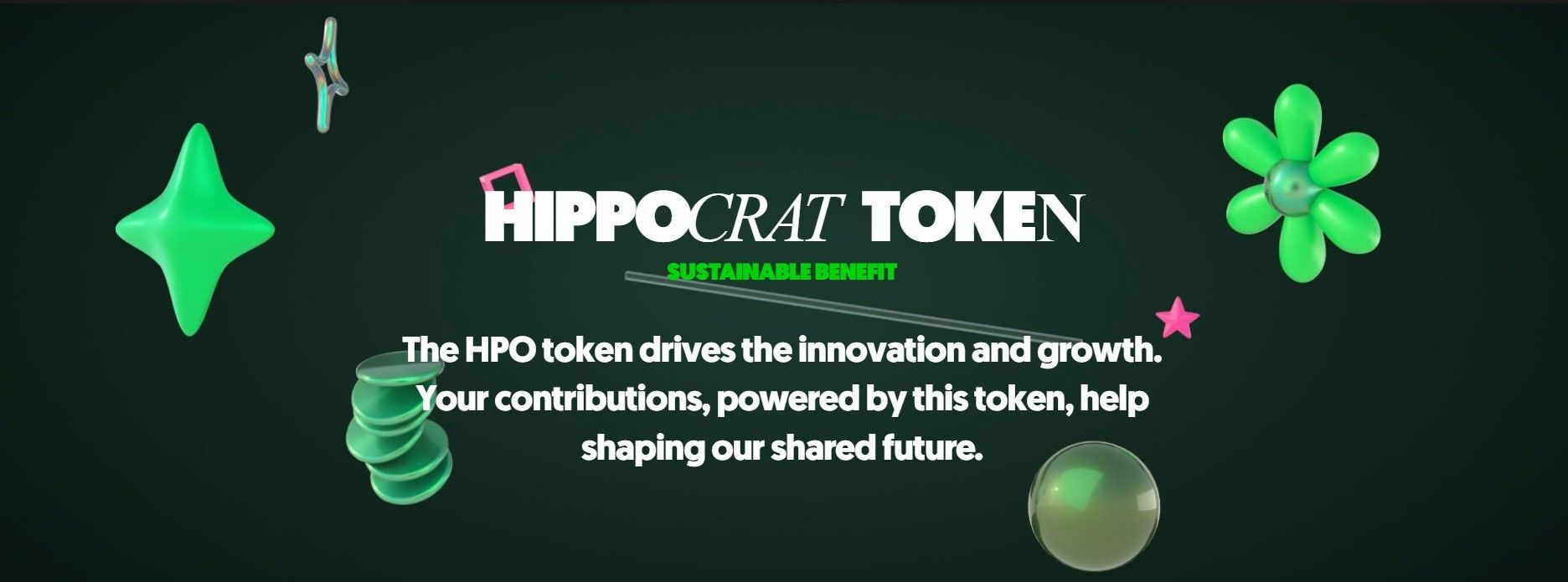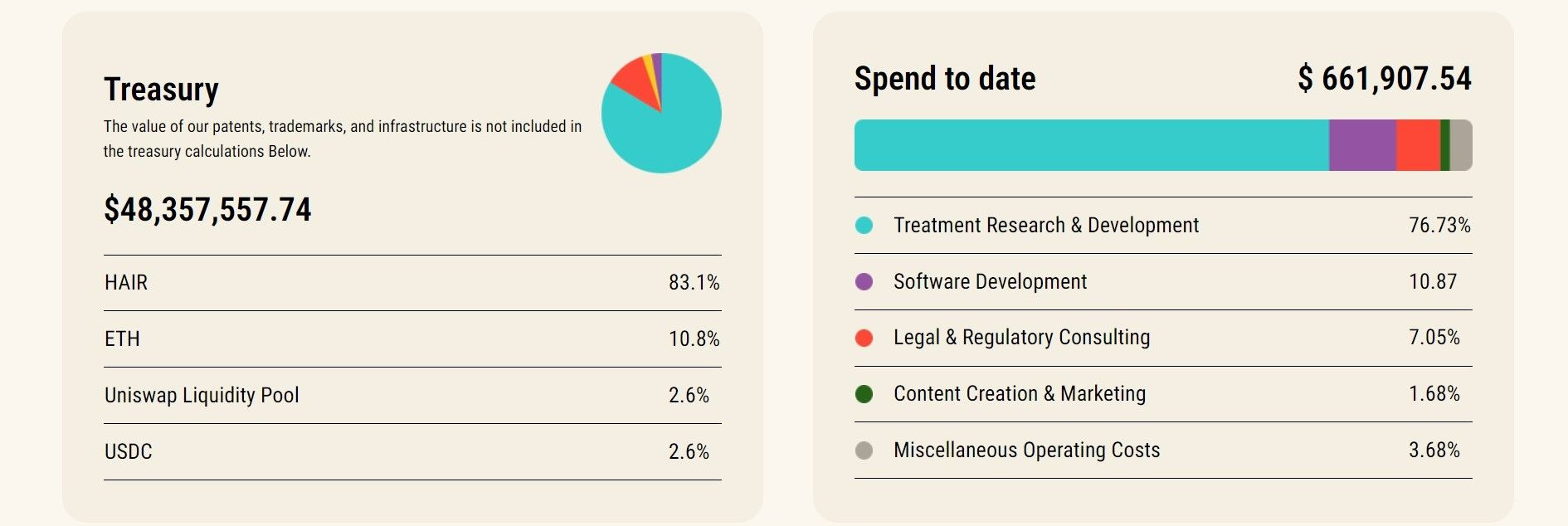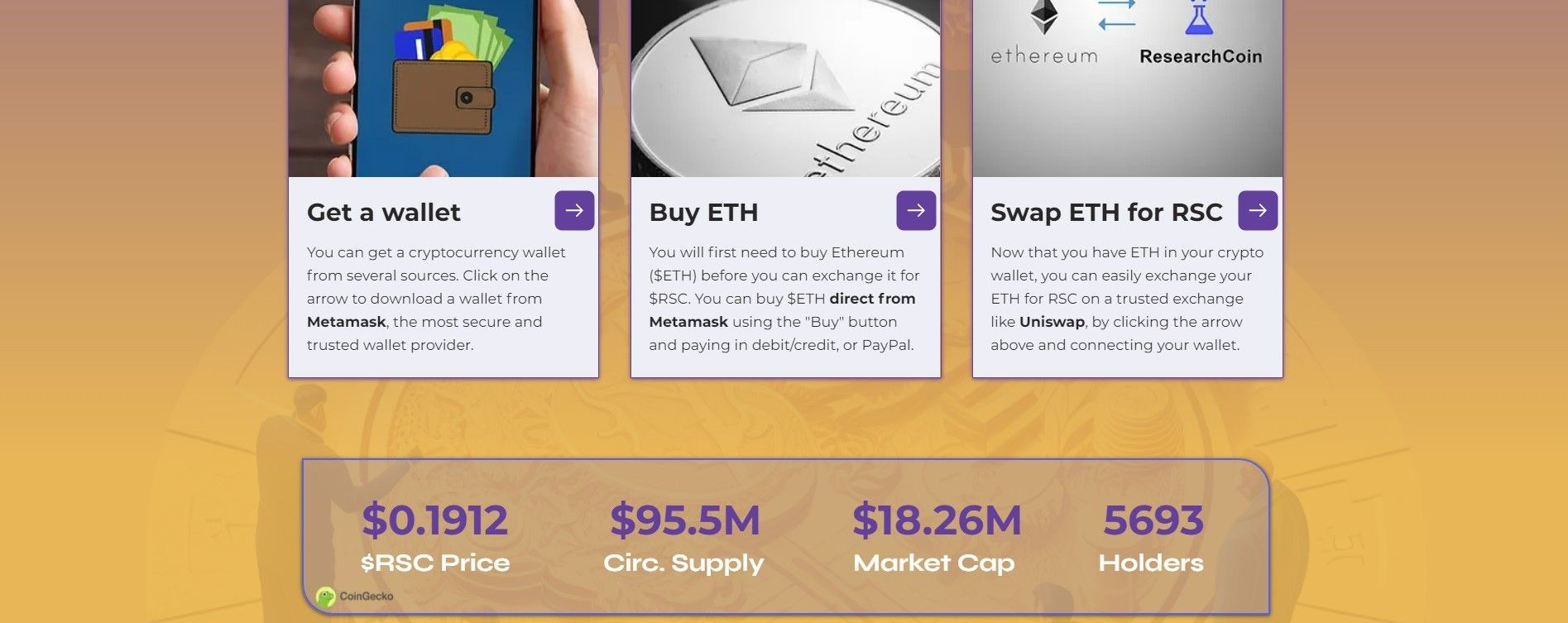Science is the systematic pursuit of knowledge that governs the natural world and the universe, shaping everything from the tiniest particles to the largest galaxies. Scientific principles, grounded in evidence and experimentation, have driven every significant advancement in human history, fostering progress and innovation. However, science today is increasingly regulated, with research and funding often driven by profit motives, particularly in fields like pharmaceuticals. This shift threatens the true essence of scientific inquiry and innovation.
Enter decentralized science, or DeSci (which sounds way cooler); a revolutionary approach that leverages blockchain and decentralized technologies to restore the purity of scientific research, democratize funding and foster global collaboration. DeSci promises to realign science with its foundational principles, ensuring it remains a beacon of progress and discovery for all humanity.
At least, this is the theory behind DeSci, but time will tell how much of a punch it can pack as global digitalization and decentralization march on.
In this brave new realm, blockchain technology, DAOs (decentralized autonomous organizations), and tokenization are transforming how we conduct, fund and share scientific research. From accelerating breakthroughs in medicine to democratizing access to cutting-edge studies, DeSci projects are not just a tech trend — they’re a revolution.
In this review of the top decentralized science projects, we’ll dive into some of the most exciting DeSci projects out there, exploring how they’re reshaping the scientific landscape and what this means for the future of research. So, grab your virtual lab coat, and let’s get started on this journey into the heart of DeSci innovation!
What is Decentralized Science (DeSci)?
DeSci allows scientists worldwide to collaborate seamlessly, cutting through bureaucratic barriers and focusing on true scientific research. It’s like harnessing the internet’s best features — open access, global collaboration, and instant sharing — for science. Get it? For science…
DeSci and its Goals
Here are the key goals driving the DeSci movement:
- Increased Transparency and Openness: DeSci promotes free access to scientific data and methodologies, enhancing reproducibility and credibility, similar to how Wikipedia allows open information sharing.
- Democratized Access and Inclusivity: DeSci breaks down publishing barriers, enabling scientists from diverse backgrounds to participate and contribute, making knowledge accessible to all.
- Decentralized Collaboration: DeSci facilitates global, censorship-resistant collaboration among researchers, promoting diverse perspectives and collective problem-solving.
- Innovative Incentive Structures: DeSci uses DAOs and tokens to compensate researchers, aligning individual and collective goals, and ensuring fair distribution of resources.
- Researcher Empowerment: Researchers control their intellectual property through IP-NFTs, allowing them to monetize their work while encouraging open sharing.
- Trustless Verification: Blockchain technology ensures data integrity and immutability, building trust within the research community through verifiable data authenticity.
How DeSci Leverages Blockchain Technology
Blockchain technology is at the heart of the DeSci movement, offering solutions to longstanding challenges in the scientific community. By utilizing blockchain, DeSci enhances data security, intellectual property management, and funding mechanisms.
Here are the primary ways DeSci leverages blockchain technology:
- Secure Data Storage: Blockchain provides an immutable ledger for research data, ensuring integrity and transparency.
- Intellectual Property Management: IP-NFTs manage ownership rights over discoveries, allowing clear, verifiable ownership and easy transfer of rights.
- Decentralized Funding and Governance: DAOs use blockchain-based smart contracts for transparent, community-driven funding and governance, making the process more democratic and efficient.
Addressing Traditional Scientific Research Limitations
Traditional scientific research is controlled by centralized institutions, leading to several drawbacks:
- Lack of Transparency and Openness: Traditional research often hides data and methodologies behind paywalls, restricting access and hindering reproducibility. DeSci promotes open access, enhancing credibility.
- Barriers to Collaboration: Geographical and institutional constraints limit collaboration. DeSci’s decentralized networks enable global collaboration.
- Inefficient Funding Models: Traditional funding is slow and competitive, limiting progress. DeSci employs DAOs and quadratic funding to democratize and expedite access to research funding.
- Challenges in Intellectual Property Management: Managing IP in traditional systems is complex and costly, favoring large institutions. DeSci simplifies IP management through IP-NFTs, allowing researchers to assert ownership and monetize contributions.
In essence, DeSci aims to transform the traditional scientific system, making it more transparent, inclusive, collaborative and incentive-driven.
How DeSci Projects Work
DeSci projects harness the power of decentralized technologies like blockchain, DAOs and tokenization to transform scientific research and collaboration.
Here's a deeper dive into three key pillars of DeSci functioning:
Decentralized Data Sharing and Ownership
DeSci acts as a global, open-source lab where everyone can contribute and securely share findings, contrasting with traditional centralized repositories.
- Secure Data Storage: Blockchain records every piece of research data immutably, ensuring integrity and transparency.
- Intellectual Property Management: Researchers can use IP-NFTs to manage and monetize their work, creating digital certificates of ownership.
- Secure Data Marketplaces: Decentralized storage solutions encrypt and distribute data, reducing the risk of breaches, while smart contracts automate data access agreements.
- Privacy and Access Control: Data is encrypted and distributed, with smart contracts enforcing access rules, ensuring only authorized parties can view or use the data.
By leveraging blockchain and decentralized storage, DeSci creates a transparent, secure, and equitable ecosystem for data sharing and ownership.
 Image via Shutterstock
Image via ShutterstockDecentralized Funding and Incentives
DeSci introduces innovative, decentralized funding models to support scientific research.
- Tokenized Research Funding: Researchers can create and sell IP-NFTs, monetizing their work and sharing in its value.
- Community-Driven Funding Models: DAOs enable token holders to vote on funding proposals, democratizing research funding and aligning community incentives.
- Benefits for Researchers and Investors: Researchers gain more control and direct compensation for their work, while investors can directly fund projects and potentially earn returns.
These models bridge the gap between basic research and commercialization, accelerating the application of scientific discoveries.
Decentralized Collaboration and Governance
- DeSci promotes global collaboration and decentralized governance.
- Decentralized Collaboration: Distributed networks enable cross-border collaboration, promoting diverse perspectives and collective problem-solving.
- DAO Structures in DeSci: DAOs coordinate research efforts and funding, using smart contracts to automate rules and decisions.
- Community-Driven Decision-Making: Token holders have voting rights on research proposals, creating a democratic and transparent funding process.
By leveraging DAOs and decentralized collaboration, DeSci aims to create an inclusive, transparent, and efficient scientific ecosystem.
DeSci projects are thus transforming scientific research by leveraging decentralized technologies to enhance data sharing, funding, and collaboration. This new approach aims to create a more open, democratic, and efficient scientific ecosystem that benefits researchers and society as a whole.
Top DeSci Projects
Let’s now check out the highlight reel of the DeSci world with the best decentralized science projects that are not only transforming the way we do science, but also how we think about data, collaboration, and funding.
OriginTrail (TRAC)
OriginTrail is a decentralized knowledge graph network designed for trusted data sharing across supply chains. It enables secure information exchange using blockchain, oracles, and AI agents. Key features include data interoperability, immutability, and cost efficiency.
 OriginTrail is a Decentralized Knowledge Graph Network. Image via OriginTrail
OriginTrail is a Decentralized Knowledge Graph Network. Image via OriginTrailIndustries
- Supply Chain Management
- Pharmaceuticals
- Retail
- Logistics
- Government
How It Works
OriginTrail operates through decentralized nodes holding and sharing data. The TRAC token ensures data integrity and compensates nodes for their resources. Key technologies include zero-knowledge proofs for data protection and the OriginTrail Decentralized Network (ODN) for data integrity and interoperability.
Key Features of OriginTrail Network
- Interoperability and Data Integrity:
- Built on GS1 and W3C standards for efficient data alignment.
- Supports various data types, verified through consensus checks and third-party audits.
- Data Immutability:
- Uses cryptographic hashing to ensure data is tamper-proof.
- Hashes are placed on the blockchain for verification.
- Stability & Cost Efficiency:
- Most operations occur off-chain, reducing costs.
- Open-source and easy to integrate with existing systems.
- Network Incentivization via Token Staking:
- TRAC tokens are used to incentivize honest participation and resource provision.
- Nodes stake TRAC to participate and earn rewards for data jobs.
Native Token (TRAC)
TRAC is an ERC-20 utility token essential for the OriginTrail ecosystem. It’s used for staking, publishing data and collateralizing data jobs. There are six primary utility mechanisms for TRAC within the ODN.
 TRAC is a Utility Token Essential for the OriginTrail Ecosystem. Image via OriginTrail
TRAC is a Utility Token Essential for the OriginTrail Ecosystem. Image via OriginTrailRoadmap and Ecosystem Development
OriginTrail's roadmap focuses on expanding its decentralized knowledge graph and enhancing AI integration. Key partnerships with organizations like the British Standards Institution, Walmart, and the EU Commission’s Next Generation Internet support its mission. The ecosystem includes products like ChatDKG for AI-driven knowledge verification and the OriginTrail Parachain for multi-chain interoperability.
Dynex (DNX)
Dynex operates as a next-generation platform for neuromorphic computing, aiming to deliver more scalable, energy-efficient solutions. It provides a Proof-of-Useful-Work (PoUW) mechanism to enhance computational tasks, ensuring security and efficiency. It leverages quantum computing to address real-world problems across various industries. Its ecosystem includes customers, integration partners, universities, strategic visionaries, decentralized miners, and media partners.
 Dynex Operates as a Platform for Neuromorphic Computing. Image via Dynex
Dynex Operates as a Platform for Neuromorphic Computing. Image via DynexKey Components
- Customers: Use Dynex's quantum computing for complex issues in supply chain, finance, and pharmaceuticals.
- Certified Integration Partners: Implement quantum solutions.
- Universities: Collaborate on research and education.
- Dynex Moonshots: Focus on high-impact projects and ethical considerations.
- Decentralized Computing Power: Supported by a network of miners for efficiency and security.
Statistics and Achievements
- Innovation: Dynex's platform supports neuromorphic computing for better scalability and energy efficiency.
- Technology: Uses PoUW for secure and efficient computational tasks.
- Community: Supported by a diverse network of partners and decentralized miners.
Dynex's DNX Coin
DNX is the native utility coin of the Dynex platform, used to pay for n.quantum computing time. It can be obtained through the proprietary Proof-of-Useful-Work (PoUW) algorithm, DynexSolve, or by trading on exchanges like Gate.io, MEXC, LBank, BitMart, TradeOgre, and Xeggex. Dynex offers various wallet options for managing DNX, including GUI, CLI, web wallets, and integrated services. The ASIC-resistant DynexSolve algorithm ensures efficient and fair mining, while the Dynex Neuromorphic Chip transforms devices into advanced computing units.
VitaDAO (VITA)
VitaDAO is a decentralized autonomous organization (DAO) focused on funding longevity research and development. It aims to accelerate progress in extending human lifespan and healthspan through a community-driven approach.
 VitaDAO is Focused on Funding Longevity Research and Development. Image via VitaDAO
VitaDAO is Focused on Funding Longevity Research and Development. Image via VitaDAOVITA Token
The VITA token is the native cryptocurrency that powers the VitaDAO ecosystem. VITA tokens are used for governance, funding research proposals, and incentivizing participation within the DAO.
Funding and Governance
VitaDAO utilizes a decentralized governance model, where VITA token holders can propose, discuss, and vote on research projects to be funded by the DAO's treasury. This community-driven approach aims to align the incentives of researchers, investors, and the broader longevity community.
Research Focus
VitaDAO focuses on funding early-stage research and development in the field of human longevity, including areas like regenerative medicine, cellular therapies, and drug discovery. The DAO aims to address the lack of critical early-stage funding in the biopharma industry by providing a decentralized platform for longevity research.
Funding Deployed and Liquid Funds
VitaDAO has deployed over $4.2 million in funding and currently has more than $6 million in liquid funds available for future research projects.
Partnerships and Initiatives
Their website mentions several partnerships and initiatives under the VitaDAO umbrella, including:
- Humanity: A quantified-self app that monitors digital biomarkers and generates a proprietary aging score.
- Matrix Bio: A research venture leveraging the anti-aging effects of hyaluronic acid from naked mole rats.
- BE Therapeutics: Exploring the possibility of age reversal through progressive brain tissue replacement.
- ExcepGen: Developing RNA therapeutics for longevity using the RNAx platform.
- The Longevity Prize: A series of prizes to accelerate progress in longevity and rejuvenation research.
- The VitaDAO Longevity Fellowship: Providing micro grants to students and early career individuals interested in longevity research.
- The Longevity Decentralized Review (TLDR): An on-demand peer review service for longevity research manuscripts.
- The Longevist: An overlay journal curating the most impactful longevity research quarterly.
Hippocrat (HPO)
Hippocrat is a decentralized science (DeSci) platform that enables secure and transparent clinical trials and healthcare data management. It leverages blockchain technology to create an immutable record of trial data, participant information, and research outcomes.
 Hippocrat Enables Secure Clinical Trials and Healthcare Data Management. Image via Hippocrat
Hippocrat Enables Secure Clinical Trials and Healthcare Data Management. Image via HippocratHPO Token
The HPO token is the native cryptocurrency that powers the Hippocrat ecosystem. HPO tokens incentivize participation, fund clinical trials, and reward contributors within the Hippocrat platform. According to the Hippocrat website, the total supply of HPO tokens is 1 billion, with 1 billion currently in circulation.
The HPO token has a range of utility functions, including:
- Staking to secure the network and earn rewards
- Paying for data storage and access
- Participating in governance decisions
- Funding clinical trials and research projects
Technology and Use Cases
- Hippocrat utilizes blockchain to ensure the integrity and security of sensitive healthcare data.
- The platform allows patients to maintain control over their data and selectively share it with researchers, clinicians, and other authorized parties.
- Hippocrat aims to streamline the clinical trial process by providing a decentralized, transparent, and efficient platform for trial management.
AxonDAO (AXGT)
AxonDAO is a decentralized autonomous organization (DAO) dedicated to funding neuroscience research and development. Utilizing blockchain technology, AxonDAO creates a transparent, community-driven platform for research funding allocation. The native cryptocurrency of the ecosystem is the AXGT token, with a total supply of 1 billion tokens. These tokens grant holders voting rights to propose and approve research projects funded by the DAO's treasury.
 AxonDAO is Dedicated to Funding Neuroscience Research and Development. Image via AxonDAO
AxonDAO is Dedicated to Funding Neuroscience Research and Development. Image via AxonDAOAXGT Token
- The AXGT token is the native cryptocurrency that powers the AxonDAO ecosystem.
- According to the AxonDAO website, the total supply of AXGT tokens is 1 billion.
- AXGT tokens give holders voting rights to propose and approve research projects to be funded by the DAO's treasury.
How AxonDAO Works
- AxonDAO employs a decentralized governance model, where AXGT token holders can submit, discuss, and vote on research proposals.
- This community-driven approach aims to align the incentives of researchers, investors, and the broader neuroscience community.
- The DAO's treasury is funded by AXGT token sales and used to finance promising neuroscience research projects.
Roadmap
The AxonDAO roadmap outlines key milestones, including the launch of the AXGT token, the deployment of the DAO's governance platform, and the funding of initial research projects.
The website also mentions plans for expanding the DAO's partnerships with research institutions and biotech companies.
Funded Projects
The AxonDAO website lists several neuroscience research projects that have been funded by the DAO, including studies on brain-computer interfaces, neurodegeneration, and neural network modelling.
Whitepaper
The AxonDAO whitepaper, available on their GitBook, provides a more detailed technical overview of the project's architecture, token economics, and governance model. It outlines the AXGT token's utility for staking, voting, and funding research initiatives within the AxonDAO ecosystem.
HairDAO (HAIR)
HairDAO is focused on funding hair loss research. It creates an open, transparent platform for managing hair loss research projects.
Imagine HairDAO comes out and tells the world that while pharma was busy with profit-making, we found an easy and cheap solution to hair loss. That would be the day, right?
 HairDAO Focuses on Funding Hair Loss Research. Image via HairDAO
HairDAO Focuses on Funding Hair Loss Research. Image via HairDAOHAIR Token
- The HAIR token is the native cryptocurrency that powers the HairDAO ecosystem.
- HAIR tokens are used for governance, funding research proposals, and incentivizing participation within the DAO.
- According to the HairDAO website, the total supply of HAIR tokens is 1.5 million.
Funding and Governance
HairDAO employs a decentralized governance model, where HAIR token holders can propose, discuss, and vote on research projects to be funded by the DAO's treasury. This community-driven approach aims to align the incentives of researchers, investors, and the broader hair loss research community.
Research Focus
HairDAO focuses on funding research projects related to hair loss, hair regeneration, and scalp health. The DAO aims to accelerate the development of new treatments and therapies for hair loss by providing a decentralized platform for research funding and collaboration.
The HairDAO website encourages researchers, investors, and community members to get involved in the project. Researchers can submit research proposals for funding consideration, while investors can purchase HAIR tokens to participate in governance and support the DAO's mission. Community members can contribute skills, resources, and ideas to help advance the HairDAO ecosystem.
ResearchHub (RSC)
ResearchHub is an online community where scientists and enthusiasts share, review, and fund scientific research, powered by ResearchCoin (RSC). This platform aims to democratize scientific research by incentivizing open-source collaboration.
 This is Where Scientists and Enthusiasts Share, Review and Fund Scientific Research. Image via ResearchHub
This is Where Scientists and Enthusiasts Share, Review and Fund Scientific Research. Image via ResearchHubToken Details
- RSC is an ERC-20 token with a fixed total supply of 1 billion tokens.
- According to the ResearchHub documentation, 480 million RSC tokens are dedicated for community engagement and distribution over 12 years.
- 20 million RSC tokens per year are specifically set aside for rewarding upvotes on the platform.
Token Utility
- RSC tokens are used to reward researchers, peer reviewers, and other contributors for their efforts on the ResearchHub platform.
- The token also facilitates funding for research projects through the platform's decentralized funding mechanisms.
- RSC can be staked or used to participate in the platform's governance decisions.
Funding
The ResearchHub platform offers decentralized funding opportunities for research projects through its RSC token-based mechanisms. Researchers can submit proposals for funding, which are then voted on by the RSC token holder community. Successful projects receive funding in RSC tokens to support their research activities.
Investing in DeSci Projects
Unlike many speculative crypto assets, DeSci focuses on real-world scientific and technological applications, appealing to those interested in tangible innovation. However, its nascent stage comes with significant uncertainties and challenges related to governance, data privacy and regulatory compliance.
Diversification and thorough research are essential, as some projects may struggle to gain traction. Early identification of promising DeSci projects could yield substantial rewards if the sector achieves mainstream adoption.
Types of DeSci Investments (Tokens, DAOs)
DeSci Tokens
Many DeSci projects have native utility tokens for governance, funding research, staking, and participation incentives. Investing in these tokens offers exposure to project growth but carries high risk due to volatility and regulatory uncertainty.
- Benefits: High returns potential, governance participation, support for the project.
- Risks: High volatility, project failure risk, regulatory uncertainty.
DeSci DAOs
DAOs enable community-driven funding and governance of research initiatives. Investors purchase governance tokens to vote on proposals, directly influencing research directions.
- Benefits: Influence project priorities, potential token appreciation, support collaborative research.
- Risks: Governance complexity, potential dominance by large token holders, legal uncertainties.
DeSci Research Funding
Direct investment in specific research projects or initiatives involves tokenizing research outputs or IP, providing alternative funding sources.
- Benefits: High returns if successful, direct support for research, exposure to early-stage breakthroughs.
- Risks: High project failure risk, valuation challenges, limited liquidity.
Due Diligence for DeSci Investors
Careful due diligence is crucial when investing in DeSci projects. Key factors to consider include:
Project Team
- Background and Expertise: Evaluate credentials and experience, looking for scientific, technical, and entrepreneurial skills.
- Track Record: Assess the team’s history of executing and delivering projects.
Research Focus
- Problem and Solution: Understand the scientific or technological issue and its potential impact.
- Roadmap Alignment: Check alignment with emerging trends and needs.
Community Engagement
- Participation and Governance: Look for active involvement and effective feedback mechanisms.
- Active Engagement: Strong community support often indicates higher success chances.
Technology and Tokenomics
- Technical Whitepaper: Review for the understanding of technology and token utility.
- Token Economics: Assess distribution, supply dynamics, and incentive structures.
Partnerships and Collaborations
- Strategic Partnerships: Identify collaborations with research institutions and industry players.
- Synergies: Strong partnerships enhance resources, expertise, and credibility.
Regulatory Compliance
- Regulatory Frameworks: Understand navigation of data privacy, IP, and financial regulations.
- Compliance Plans: Evaluate strategies for ensuring compliance and mitigating risks.
Research Resources
- Project Whitepaper: Detailed insights into vision, technology, and roadmap.
- Project Website and Social Media: Updates, community engagement, and announcements.
- Industry Publications and Reports: Trends, challenges, and opportunities.
- DeSci Communities and Forums: Diverse perspectives from investors, researchers, and experts.
By evaluating these key factors, you can make informed investment decisions and identify promising projects aligned with your goals and risk tolerance.
Challenges of DeSci
DeSci is full of promise, but it also faces significant challenges, particularly around regulatory landscape and data privacy. Here's a closer look at these hurdles and the efforts to overcome them.
Regulatory Landscape and Legal Considerations
One of the primary challenges for DeSci projects is navigating regulatory uncertainty. The intersection of blockchain technology, cryptocurrencies, and decentralized systems with scientific research is still relatively new, and clear guidelines and regulations are often lacking. This creates a regulatory gray area, where projects must operate without a fully defined legal framework. Additionally, handling sensitive data within DeSci platforms requires compliance with stringent privacy regulations such as GDPR and HIPAA. Balancing these regulations with the inherently decentralized nature of DeSci can be complex and challenging.
Intellectual property (IP) rights are another significant area of concern. The tokenization and management of IP on blockchain raise questions about ownership, licensing, and enforcement. Establishing clear legal frameworks for decentralized IP management is essential but difficult. Furthermore, DeSci projects involved in funding or developing new technologies may fall under the purview of financial regulators, adding another layer of complexity to navigating legal requirements. The evolving nature of these technologies and their applications in science means that regulatory oversight is both necessary and challenging to implement effectively.
Data Privacy and Security Concerns
Data privacy is a critical concern for DeSci platforms, as they handle highly sensitive research data. Unauthorized access to this data could lead to significant privacy breaches, posing risks to both individual researchers and the broader scientific community. Decentralized storage, while enhancing security in some respects, introduces vulnerabilities such as potential data leaks from nodes or the risk of malicious actors accessing distributed data. Ensuring regulatory compliance with complex regulations like GDPR and HIPAA is crucial, as non-compliance could result in severe penalties and undermine the credibility of DeSci initiatives.
By addressing data privacy and security concerns through technical solutions, regulatory compliance, and community-driven governance, DeSci projects aim to create a trustworthy and secure ecosystem for scientific research. Overcoming these challenges is crucial for the long-term success and mainstream adoption of DeSci.
The Future of DeSci
By leveraging blockchain and decentralized technologies, DeSci is set to overcome many of the limitations of traditional scientific systems.
Potential Impact on Scientific Progress
DeSci platforms have the potential to significantly impact scientific progress through increased transparency and reproducibility. By making data and methodologies openly accessible, DeSci enhances the ability of researchers to verify and build upon each other's work, thereby improving reproducibility and trust in the scientific process. This openness ensures that scientific findings are robust and reliable, ultimately advancing the collective knowledge base.
Moreover, DeSci democratizes access to research, lowering barriers and enabling global participation. Researchers from diverse backgrounds and geographical locations can contribute to and benefit from scientific advancements, promoting a more inclusive and equitable distribution of knowledge. This is essential for harnessing the full potential of the global scientific community and fostering a collaborative environment that drives innovation.
Through collaboration and incentivization, DeSci fosters accelerated innovation. By creating platforms where researchers are rewarded for their contributions, DeSci incentivizes rapid scientific discovery. This model not only motivates individual researchers but also encourages collective efforts toward solving complex problems, leading to faster and more impactful scientific advancements.
Improved funding allocation is another critical impact of DeSci. Decentralized funding models, such as those implemented through DAOs, ensure that resources are allocated more effectively and transparently. These models support promising research areas that are often overlooked by traditional funding sources, thereby fostering a more dynamic and diverse scientific landscape.
Emerging Trends and Future Applications
One emerging trend in DeSci is the development of decentralized clinical trials. By utilizing blockchain and decentralized technologies, DeSci platforms streamline the clinical trial process, making it more efficient, accessible, and inclusive. This approach can reduce the time and cost associated with traditional trials, while also ensuring greater transparency and patient engagement.
Tokenized research assets represent another promising application of DeSci. By tokenizing research outputs, DeSci creates new markets and investment opportunities, incentivizing further research and development. This model allows researchers to monetize their work in innovative ways, attracting additional funding and resources to the scientific community.
Integrating AI and machine learning with DeSci platforms is poised to accelerate scientific discovery. These technologies can process vast amounts of data, identify patterns, and generate hypotheses, significantly enhancing the research process. AI-powered tools can assist researchers in uncovering insights that might be missed through traditional methods, leading to groundbreaking discoveries.
The development of decentralized biobanks is another exciting prospect within DeSci. These biobanks securely store and manage biological samples using blockchain technology, facilitating breakthroughs in biomedical research. Decentralized biobanks ensure that valuable biological data is accessible to researchers worldwide while maintaining stringent security and privacy standards.
Finally, decentralized peer review is a transformative application of DeSci. By leveraging blockchain technology, DeSci platforms can ensure transparency, fairness, and accountability in the peer review process. This approach addresses many of the current issues with peer review, such as bias and lack of transparency, ultimately improving the reliability and credibility of scientific publications.
Top DeSci Projects: Closing Thoughts
DeSci is a transformative movement in the scientific community, utilizing blockchain and decentralized technologies to overcome longstanding challenges in research and development. It aims to realign science with its core principles of transparency, inclusivity, and collaboration, ensuring science remains a progressive and accessible endeavor for all.
The primary goals of DeSci include promoting transparency and openness through free access to scientific data and methodologies, enhancing reproducibility and credibility. It also seeks to democratize access and inclusivity by breaking down publishing barriers and enabling diverse participation. Decentralized collaboration is another key objective, facilitating global, censorship-resistant collaboration among researchers. Additionally, DeSci introduces innovative incentive structures using DAOs and tokens to fairly compensate researchers, empowers researchers to control and monetize their intellectual property, and ensures data integrity and authenticity through blockchain technology.
The future of DeSci is promising, with potential impacts including increased transparency, democratized access to research, accelerated innovation, and improved funding allocation. Emerging trends like decentralized clinical trials, tokenized research assets, AI-powered discovery, decentralized biobanks, and peer review are shaping the future landscape of scientific research.





